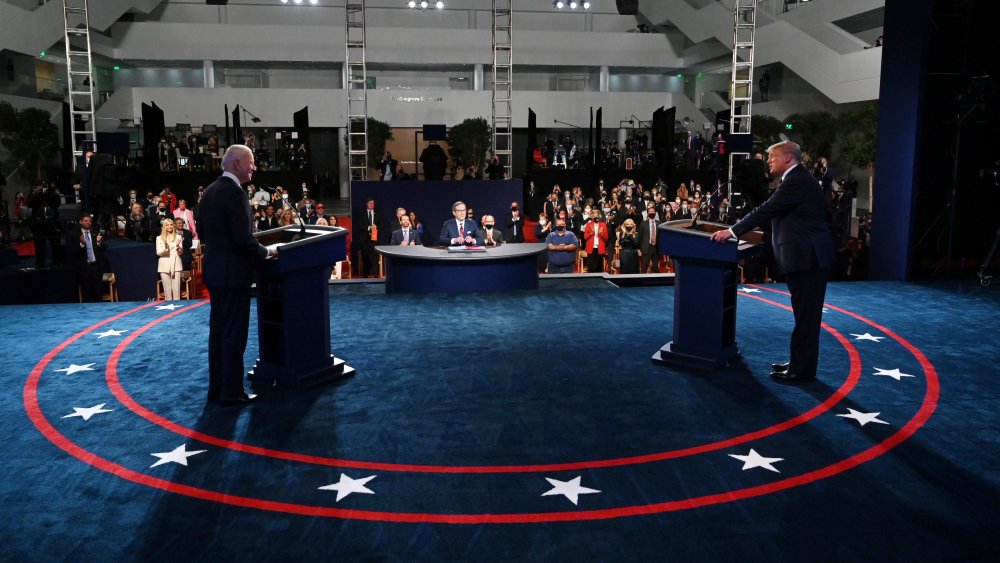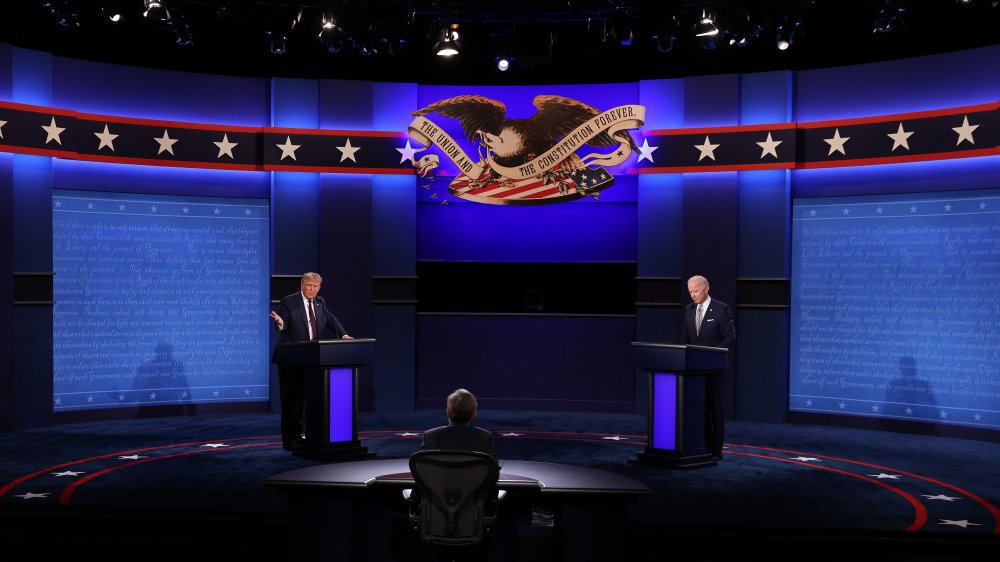The Big Way The Next Presidential Debate Will Be Different
The first presidential debate on Tuesday night was chaotic, to say the least. From insults and constant interruptions to flat out bullying, Americans were left feeling disappointed and disheartened by not only the lack of information conveyed during the 90 minute broadcast, but also by the lack of civility the President and former Vice-President afforded each other. Analysts on both sides of the political divide were left reeling after a night Jake Tapper of CNN called, "a hot mess, inside a dumpster fire, inside a train wreck." Meanwhile, Republican strategist Micheal Steel observed in an interview with the New York Times, "I've seen better-organized food fights at summer camp."
It was obvious that moderator Chris Wallace could not keep the debate on-track despite numerous failed attempts and reprimands which left the veteran newsman anything but "invisible," as he once hoped to be when asked by Fox News about his preparations prior to the event.
In an effort to not only return some decorum to the debates, but also to retain viewership, The Commission on Presidential Debates, which sponsors and oversees the events, has promised they will be making changes before the next debate scheduled for October 15th. Although none of the changes have been announced, insiders suggest the Commission is likely to give the moderator the ability to mute the microphone of the candidate not speaking (via CBS and The New York Post).
Experts have suggested that muting the mics is a good idea, but others argue it is unlikely to happen
On Wednesday the Commission released the following statement, "Last night's debate made clear that additional structure should be added to the format of the remaining debates to ensure a more orderly discussion of the issues" (via CBS).
And while those changes are still largely up in the air, journalist Megyn Kelly, who served as a moderator for the presidential debate on August 6, 2015, suggested on Twitter, "Keep the moderator on cam & give him/her the ability to cut the mics. They will stop talking." Janet Steele, professor of media and public affairs at George Washington University, agrees. She explained to USA Today, "I really feel that if the debate commission does not agree to the equivalent of the Zoom mute... this should be the one and only presidential debate because it's not presidential at all, it's just a brawl."
Taylor Hahn, director of the communication program at Johns Hopkins University, thinks it's a good idea in theory, but it's unlikely to happen. His argument centers around the allure of the debates for many viewers is the possibility of a "political spectacle," and muting the mics will likely result in candidates claiming bias. He explained to USA Today that, giving the moderator the ability to mute "increases the likelihood of the moderator or the organizer looking ... as though they're biased or privileging candidates which is a lot less appealing for those organizers."

